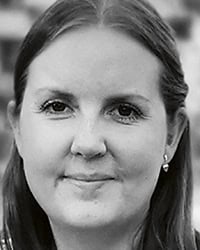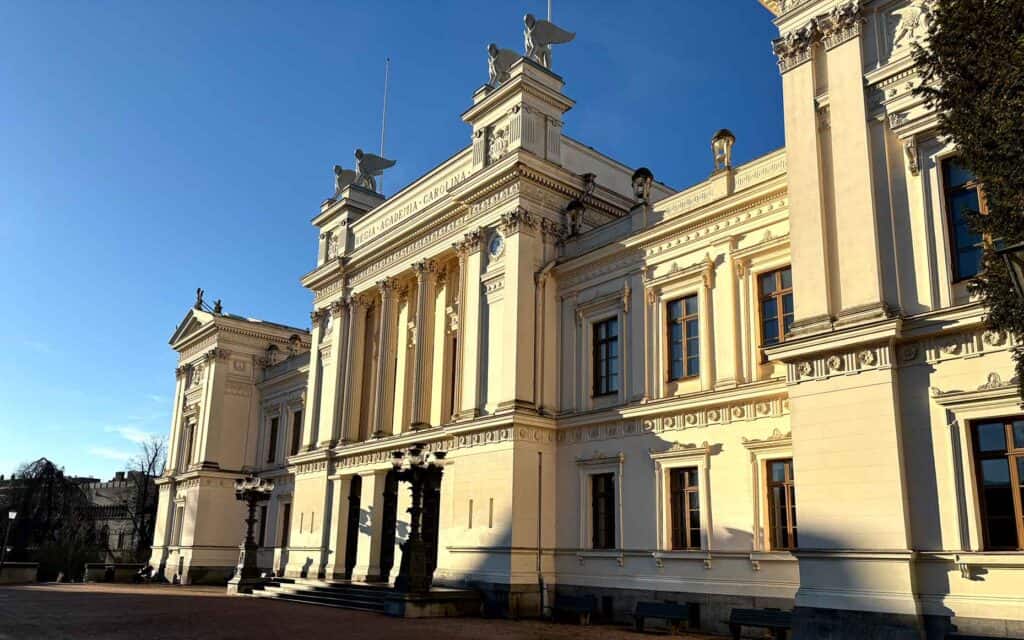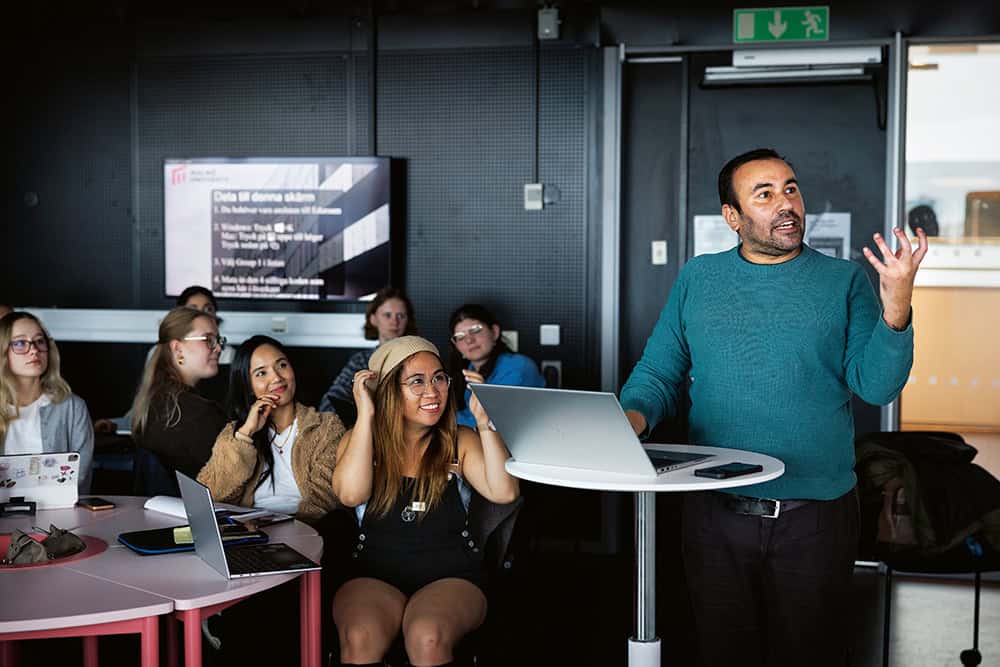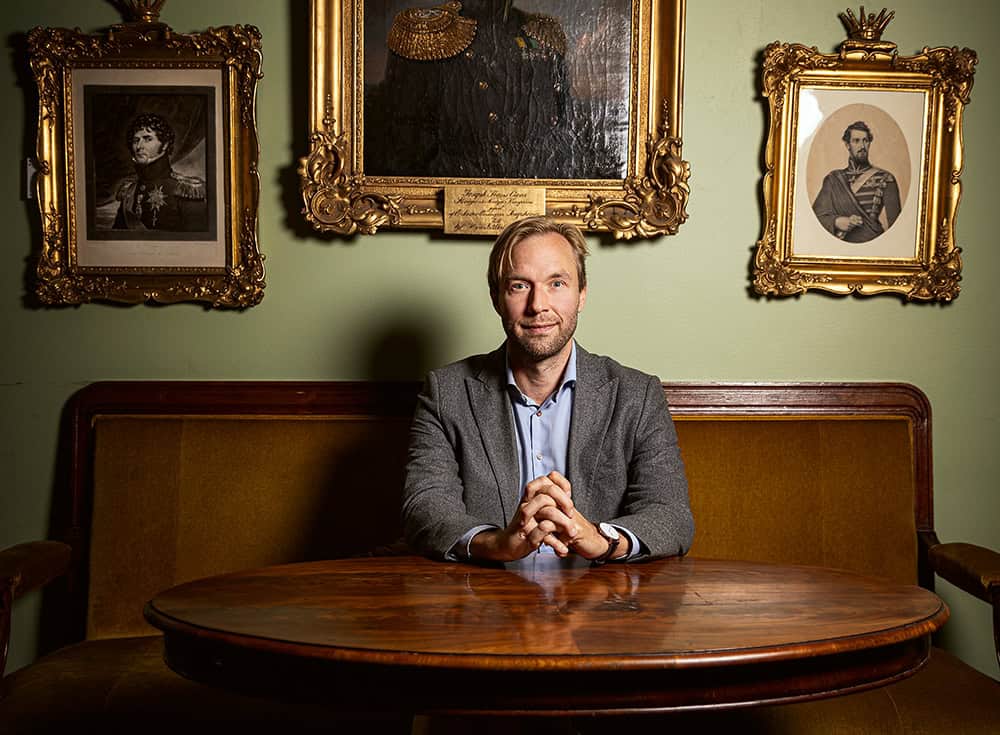Threats to academic freedom need to be specified clearly in the union’s operational objectives in order not to risk ”turning to mush”, writes the local SULF association at Stockholm University in a motion to this year’s Congress.
“Currently, threats to academic freedom are described at too abstract a level of analysis,” says Stephan Baraldi, chair of SULF Stockholm. “Mush is perhaps too bold a term, but sometimes we miss the real problems that already exist or that will arise if we don’t work directly with this issue down on the front line.”
SULF needs to refine its strategies regarding protection of academic freedom. Without actual examples of what such threats can lead to, it is more difficult to develop proper strategies, he continues.
“For those of us who work actively at the universities, why is academic freedom important for us and what could happen if we don’t work with it?”
Salary setting dialogues are another topic that comes up in several motions. The local association at Lund University describes how the employer has all the power in the salary setting process and says that the union’s influence has grown weaker. They therefore want SULF to counter salary-setting dialogues by working for the introduction of a veto against the model at the local level.
”Members feel abandoned and are leaving us while we maintain a system that looks to many people like a charade,” they write in their motion.
The local associations at Linköping and Umeå describe how the salary-setting dialogue model gobbles up resources, undermines the union and leads to a one-sided process from the employer’s side.
“The union has negotiated away its strongest card,” says David Rule, chair of SULF Linköping. “Both to me personally and from what I hear from other members, it seems like people are almost always dissatisfied. Even if you manage to get a good salary, you don’t really know why.”
Both local union associations want SULF to resolve to work towards a new salary review model. They have deliberately chosen not to address what such a system should look like in their motion, Rule adds.
“But we have ideas about certain characteristics that such a system should include. It should be transparent, so you don’t sit there without a lot of information you would have needed. Somehow, we must use our collective strength, because why else do we have the union?”
Since the previous Congress in 2021, war and conflict have left their marks on the world, several motions point out. Michaël Le Duc, at the SULF association at Mälardalen University, wants the union to look into how higher education institutions should address cooperating with dictatorships.
The motion was submitted based on the wishes of an individual member.
“We have war in Europe, in the Middle East and several other major conflicts in the world. It is not so easy to get investigations passed, but a framework for how universities should consider collaborations with dictatorships could be drawn up,” says Le Duc.
Six members at Umeå University have submitted a motion specifically about the conflict in Gaza. They want the union to work for a ceasefire, including by advocating that higher education institutions boycott collaborations with Israel. They also want SULF to take a stand for academic freedom and the ‘right to life’ in Palestine.
“Simply make it clear that the type of single-minded campaign that Israel is conducting in Gaza, where they are bombing all the universities and schools, is totally unacceptable,” says Petter Ericson, one of the signatories of the motion.
Additionally, SULF should contribute in various ways to the reconstruction of academia in Palestine when the conflict is over, he says. He is disappointed that SULF has taken a stand for Ukraine but not when it comes to the situation in Gaza.
“It is good that we have done so in relation to Ukraine, but it is regrettable that we do not do the same in other conflicts,” says Ericson. “It is clear to me that geopolitical considerations are taken into account in a way that I do not think is right.”
Doctoral candidates with primary employment outside higher education institutions will be another topic for the Congress delegates to debate. Helene Degerman, a doctoral candidate employed at Research Institutes of Sweden, (RISE), a couple of other members at RISE and SULF Linköping have submitted a motion asking the union to review the ”problematic situation” for these doctoral candidates.
“It is well known that industry-employed doctoral candidates find it difficult to get sufficient study and research time, as they have many other commitments at their primary employers,” she explains.
If for some reason the employer no longer wants to pay the doctoral candidate, for example, they are in a vulnerable position. “They may end up in a situation where they have made sacrifices but may not get anything for it in the form of a doctorate.”
Degerman also wants SULF to put together advice and a set of recommendations for this group of doctoral candidates and to investigate whether additional agreements regarding funding and job security are needed.
Charlotte Lindgren, a member at Uppsala University, has submitted a motion about SULF’s democratic processes. Specifically, she wants people who are elected as new board members to receive training in trade union democracy.
“Newly elected people may come from different backgrounds, and I’m not just talking about immigrant backgrounds. In Sweden, in general, associations do not look the same as they did perhaps 10-20 years ago. People come in who are not really used to how to act in an association and what rules or principles apply,” she says.
The SULF central office should also be tasked with designing and updating this type of training. The training currently offered is not sufficient, says Lindgren.
“It needs to be much clearer and be updated, perhaps not continuously but a little more often than it is now.”
Among other motions, there is a proposal from the SULF Doctoral Candidate Association and SULF in Uppsala and Lund that the next Congress be bilingual, so that interpretation and all documentation are available in English.
The local association at Gothenburg University believes that the association should be broader and welcome more professional groups. The statutes should be changed so that SULF becomes a union for ”all personnel at higher education institutions with a university degree who work to deliver or support education, research and public engagement activities”, it says.
Several motions raise LGBTQI issues. The local associations in Linköping and Umeå want the union to offer training for elected representatives in LGBTQI issues and to investigate whether it is possible to LGBTQI-certify the SULF central office. In another motion, SULF in Uppsala wants to see the union advocate for higher education institutions to train their staff in how to provide support to LGBTQI people.
A new Association Board will also be elected at the Congress. The Nomination Committee has announced that the current President of SULF, Sanna Wolk, would like to seek re-election. If all the candidates proposed by the Nomination Committee are elected, half of the 20 members of the Association Board will be new.
One of the new Board members will be Linda Eriksson, a doctoral candidate at Örebro University, who has previously been on the board of the SULF Doctoral Candidate Association.

Linda Eriksson
Doctoral candidate at Örebro University
Linda Eriksson has been a doctoral candidate for four years and previously sat on the board of Örebro University. She finds it difficult to specify what the most important trade union issue is.
“There are many. However, the current legislation on residence permits affects the quite many international doctoral candidates in Sweden, both during and after their doctoral studies. The fact that we spend money on educating doctoral candidates who are then not allowed to stay in the country is very odd,” says Eriksson.
She has been nominated as a candidate to the Board but does not know by whom.
“It feels like a great honour,” she says. “It is both good and important to have doctoral candidates on the Association Board, because doctoral candidates form a significant part of SULF’s membership.”
21-22 November…
…are the dates of the SULF Congress. The previous Congress was completely digital, but this year the delegates will meet at the Waterfront Hotel in Stockholm.
54…
… motions have been submitted to this year’s Congress. The previous congress in 2021 received 51 motions.
13…
… motions have been submitted by the local SULF association in Uppsala, which is the highest number. The SULF Doctoral Candidate Association and the local association in Umeå have each submitted nine motions, with four of Umeå’s motions being written together with SULF in Linköping.



















